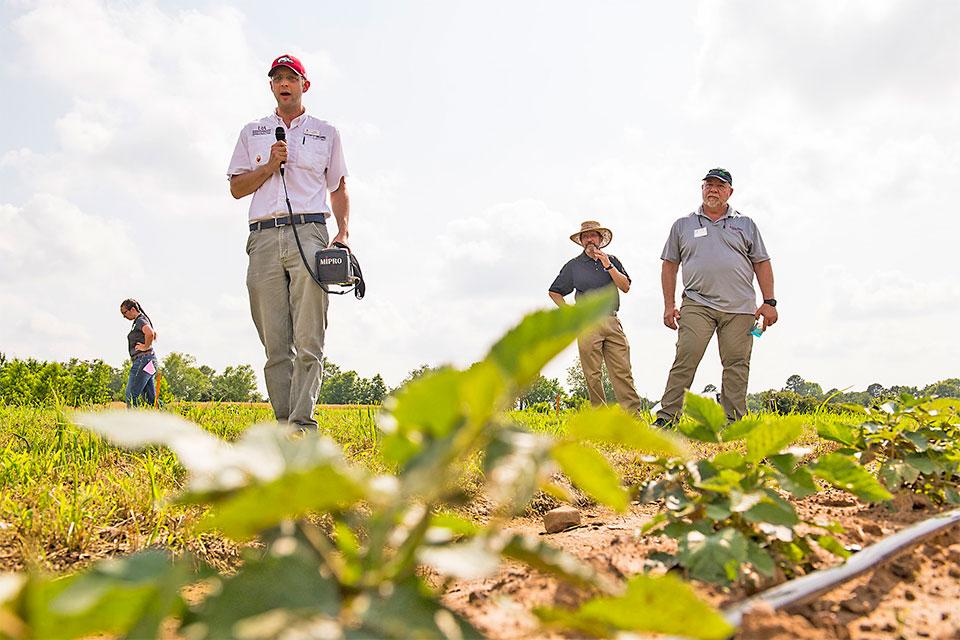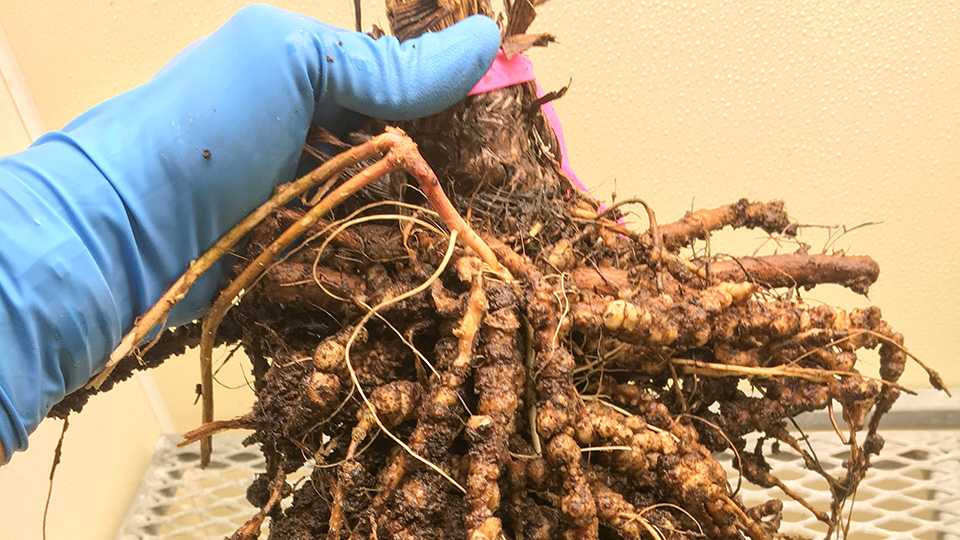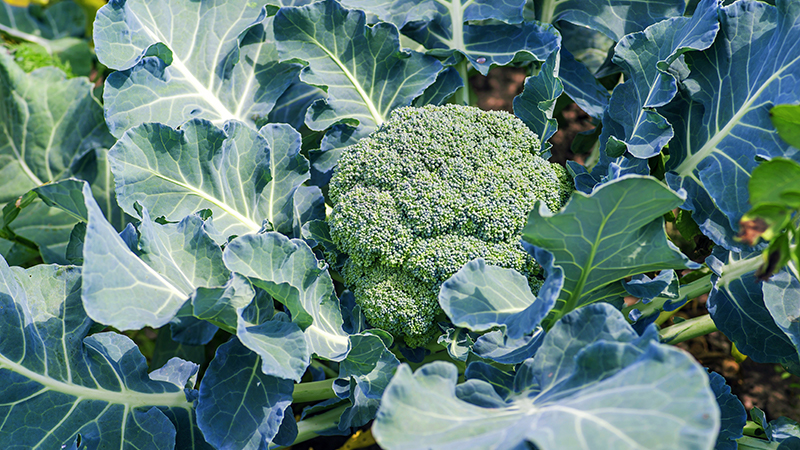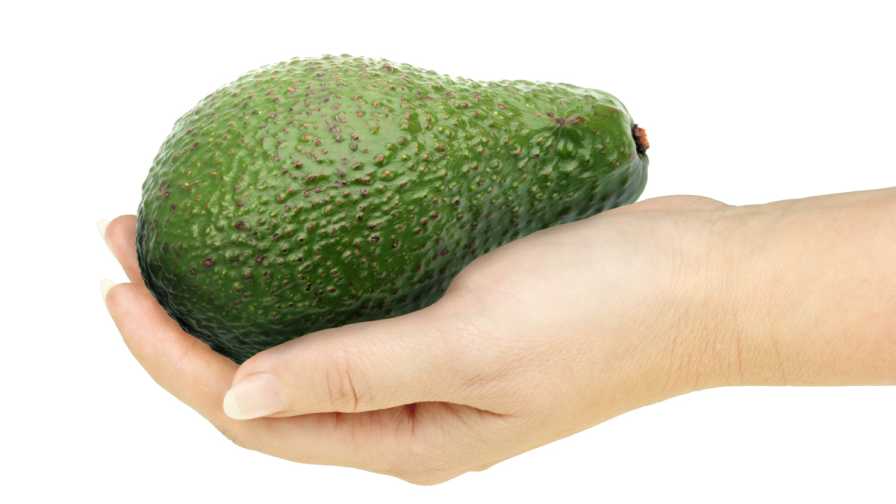Old Weed Killers are New Again for Caneberry Growers

Matt Bertucci, a University of Arkansas weed scientist, talks to growers at a past field day. He hopes to provide caneberry growers with answers to problem post-emergent weeds.
Photo courtesy of University of Arkansas
Weed scientist Matt Bertucci doesn’t mice words when it come to his latest project: “This stands to be the most impactful research I do. This gets growers excited,” he said. “We’re taking conventional herbicides and providing new options. More often you hear about something taken off the market.”
Bertucci, an Assistant Professor of Horticulture at the University of Arkansas, is referring to two herbicides used by rice, corn, and soybean growers to control broadleaf weeds. The currently registered products for post-emergent application in blackberries only control grassy weeds.
“We’re excited about these results because they offer growers new tools for better weed control,” he said. “2,4-D choline and glufosinate will give us some broader activity and let us go after a different set of species that really can cause fits for our growers.”
The research is now in the hands of the USDA and EPA awaiting final approval before recommendations can be released to growers.
But any news is good news for the industry because there are limited herbicide options for blackberry, Bertucci says. The plant is very sensitive, and companies might choose to develop herbicide products for more profitable crops. The financial incentives for developing new herbicides specifically for blackberries are low compared to major row crops. This is where the USDA’s IR-4 Project came into play.
IR-4 FIGHTS FOR GROWERS
The crop protection industry focuses their efforts on major crops, leaving specialty crop growers with fewer tools for effectively managing pests. The IR-4 Project develops the data necessary for the registration of pest management solutions with EPA, supporting the registration of pesticides for specialty crops like blackberries and ensuring that smaller but economically valuable crops receive resources needed for continued research.
This research was supported by the IR-4 Project under the direction of principal biologist and weed scientist Roger Batts. Collaborators included Wayne Mitchem, Southern Region Small Fruit Consortium Coordinator at North Carolina State University, and Marcelo Moretti, Associate Professor at Oregon State University. Moretti investigated the herbicides on raspberries.
“This support is crucial because it helps growers without the chemical companies bearing the full cost and logistical challenges of registration,” Bertucci said. “Growers should know these people are fighting for them.”
While Bertucci hopes for regulatory approval before the 2025 season, he concedes EPA is not known for being speedy.
“I’m very excited to do this type of work that growers are excited about implementing and using on their farms,” Bertucci said. “It’s very promising because I know that I have good news to deliver. I had a good discovery, and I’m just waiting to tell people, ‘Go forth and spray.’”









